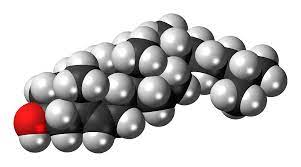Human Growth Hormone Therapy For Adult Hgh Deficiency Do The Benefits Stack Up
HGH is critical to maintaining health during development and throughout the lifespan. Growth Hormone plays a vital role in cellular metabolism and energy while supporting bone and muscle density.
Despite such importance, HGH Levels dissipate over time, often becoming critically low as we get older. Adult Hypopituitarism is quite common.
HGH Deficiency drains quality of life and saps vitality, increasing several factors associated with mortality risk. Bio-Identical Growth Hormone Injections are one of the most popular and effective tools available for treating Low HGH Levels but still have not reached widespread everyday use.
New Research Investigates Promise of HGH Therapy for Older Patients
While several studies have shown incredible promise in the use of Therapeutic Growth Hormone Injections, there are concerns about the risks potentially associated with long-term use.
Recent studies have been conducted to help medical specialists wield the tool of HGH Therapy more effectively to offer the best possible care for men and women struggling with Hormone Imbalance.
21st Century researchers are increasingly concerned with treatments that get to the core of age-related issues. HGH Deficiency contributes to system-wide health issues, including weight gain, fatigue, loss of strength, depression, and more.
 Several studies published in recent years provide evidence that Recombinant Growth Hormone Treatments can preserve heart health, strengthen bones, and more.
Several studies published in recent years provide evidence that Recombinant Growth Hormone Treatments can preserve heart health, strengthen bones, and more.
Many studies have linked HGH Injection Therapy with self-reported enhanced quality of life. Even encouraging results are associated with improved Cholesterol Profile, leading to increased HDL and reduced LDL Cholesterol Levels.
While the body of research is growing, it's important to note that much more work is needed to provide a complete and accurate profile of what benefits Growth Hormone Therapy will likely offer the individual patient.
HGH Therapy Risks for Older Patients
Some notable risks associated with Growth Hormone Injections include Neoplasia, Diabetes, and higher lipoprotein levels. These risks can potentially be critical, so you should be thoroughly evaluated for risk factors before initiating HGH Treatment.
Edema and issues with water retention are also commonly reported side effects. It's crucial to work with an HRT specialist who understands the importance of precise and accurate treatment to simulate natural Growth Hormone Levels and reduce the risk of complications.
Age and weight are two of the most significant factors associated with HGH Injection Risk.
Significantly overweight/obese patients should consider treatments/lifestyle choices designed to get weight under control before initiating treatment. HGH and Insulin have some antagonistic effects, and it's essential to prioritize ideal blood sugar levels.
It appears that when therapy targets a minimal therapeutic dose, the risk of Neoplasia is negligible, but a slight increase in Diabetes risk is still an issue. Patients should have blood glucose levels closely monitored throughout treatment.
HGH Therapy provides many worthwhile benefits to patients. It's up to you and your HRT Doctor to decide if the benefits outweigh the potential risks for you as an individual.
- Research Hgh For Patients Over 60 [Last Updated On: September 8th, 2024] [Originally Added On: September 30th, 2020]
- Natural Hormone Replacement Abc News 13 [Last Updated On: December 21st, 2024] [Originally Added On: October 2nd, 2020]
- My Own Experience With Human Growth Hormone Case Study [Last Updated On: February 10th, 2025] [Originally Added On: October 3rd, 2020]
- Ipamorelin Alternative To Hgh Injection Therapy [Last Updated On: February 10th, 2025] [Originally Added On: October 4th, 2020]
- Human Growth Hormone Rehabilitation Benefits [Last Updated On: September 1st, 2024] [Originally Added On: October 6th, 2020]
- HRT [Last Updated On: August 5th, 2024] [Originally Added On: October 7th, 2020]
- Hormone Replacement Therapy With Pellet Implants [Last Updated On: August 4th, 2024] [Originally Added On: October 8th, 2020]
- Omnitrope Bio-identical HGH Injections [Last Updated On: February 2nd, 2025] [Originally Added On: October 9th, 2020]
- Imported Human Growth Hormone Is Illegal In The United States [Last Updated On: February 1st, 2025] [Originally Added On: October 10th, 2020]
- Igf-1 Stimulates The Growth Of Motor Neurons In The Brain [Last Updated On: September 2nd, 2024] [Originally Added On: October 11th, 2020]
- Estrogen Hormone Replacement Therapy May Diminish Alzheimers Disease Risk [Last Updated On: February 1st, 2025] [Originally Added On: October 12th, 2020]
- The Potential Benefits Of Estrogen On Alzheimer's Risk [Last Updated On: January 31st, 2025] [Originally Added On: October 13th, 2020]
- Dr. Hotze Talks About A Natural Solution For Depression. [Last Updated On: December 23rd, 2024] [Originally Added On: October 14th, 2020]
- Anastrozole Research Study [Last Updated On: January 30th, 2025] [Originally Added On: October 15th, 2020]
- Symptoms Of Hormonal Imbalance In Women: What To Look For [Last Updated On: March 15th, 2025] [Originally Added On: May 12th, 2021]
- Beware of Fake Hormone Booster Pills – Sign Up for the Real Deal [Last Updated On: February 27th, 2025] [Originally Added On: December 21st, 2022]
- Chronic Fatigue versus Hormone Deficiency: How Can Patients and Doctors Tell the Difference? [Last Updated On: July 10th, 2024] [Originally Added On: January 18th, 2023]
- Ipamorelin: A Safer, Cost-Effective Alternative to HGH Therapy [Last Updated On: February 13th, 2025] [Originally Added On: February 13th, 2025]
- Treatment of Hormone Deficiencies [Last Updated On: February 15th, 2025] [Originally Added On: February 15th, 2025]
Word Count: 484







